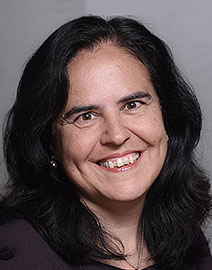
Faith
What saddened me is the way this well-intentioned program masks the way in which we are growing apart from each other -- offering a cheap substitute for real relationships.

Silecchia
Anyone who reads the daily newspaper finds within its pages a glimpse into the sorrow and despair that is -- and always has been -- a part of human life. It can be easy to grow a bit numb and detached when reading about large-scale violence, illness, and natural disasters or about those age-old human vices that extract a great toll on humanity. Sometimes, to truly understand large scale human suffering seems beyond our comprehension.
Perhaps that is why I sometimes find myself inexplicably moved by a story that seems, in comparison to others, to recount a less dramatic heartache. These are often the stories that can touch the heart more easily because they are less overwhelming.
Thus, I recently found myself reading what was likely intended to be a simple human-interest story. It broke my heart a bit.
The article spoke of a pilot program in which thousands of robotic animals -- cats, dogs, and birds -- were purchased to be distributed, free of change, to those who find themselves living lonely or isolated lives. I am not quite sure why this story touched me so deeply. But as I made my way through the article and read the stories of those who had received these robotic pets, I was struck by how many there are who have no companionship and no visits from relatives or friends. They live with that deep ache in the human heart to love and to be loved.
Some interviewed for the article spoke of the decline in social activities that came after COVID-19 unraveled some vital human bonds that were never knitted back together again. Some spoke of the way they had no one to talk to after a close loved one died. Others spoke of long evenings alone, and the desire for a companion. Some spoke of an illness or injury that kept them confined to their homes for longer periods of time than they wanted. Others wanted a distraction from bad memories or deep sadness. Still others mourned loved ones separated not by death but by distance.
Into this void have come robot pets. These creations are, undeniably, cute, and would easily make anyone smile. There is also a good deal of research that suggests that items such as this may have therapeutic benefits for those who live with various dementias and may find help in embracing a realistic creation such as this.
But what saddened me was the way in which there are so many who live lives that are so isolated from others, and the solution that we have found is a robotic invention to fill that void.
What saddened me is the way this well-intentioned program masks the way in which we are growing apart from each other -- offering a cheap substitute for real relationships.
What saddens me, too, is that this is not limited to isolated elders. So many of every generation are now substituting on-line "followers," unmet "friends," and "virtual" social engagement for the real deal. Alarming studies show that the isolation that spawned robotic pets is part of an epidemic that plagues many of our sisters and brothers -- including the youngest of them.
Unlike the other dramatic stories that grab headlines, this quiet tragedy may easily go unnoticed. Yet, for all who have been called to love our neighbors as ourselves, this is an invitation to reach out, in love, to those bearing the burden of isolation in ordinary times.
- Lucia A. Silecchia is Professor of Law and Associate Dean for Faculty Research at the Catholic University of America's Columbus School of Law.
Recent articles in the Faith & Family section
-
Scripture Reflection for Feb. 9, 2025, Fifth Sunday in Ordinary TimeFather Joshua J. Whitfield
-
Isolation in Ordinary TimesLucia A. Silecchia
-
Is non-alcoholic church wine valid for consecration?Jenna Marie Cooper
-
A winter wonderlandJaymie Stuart Wolfe
-
Praying with JesusFather Robert M. O'Grady























